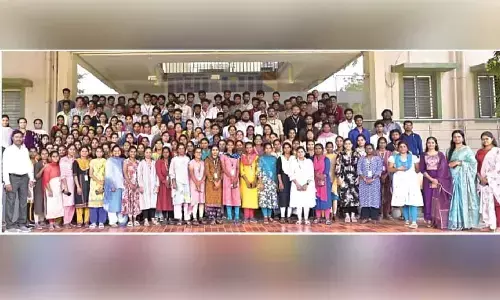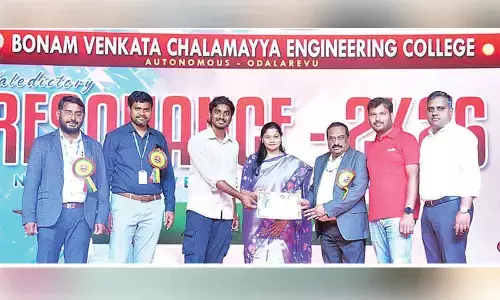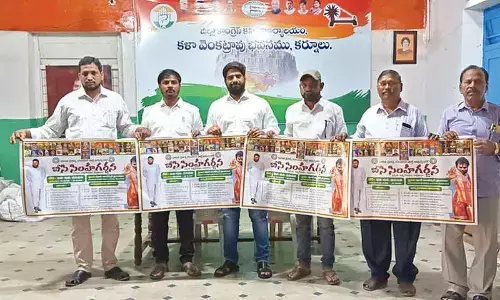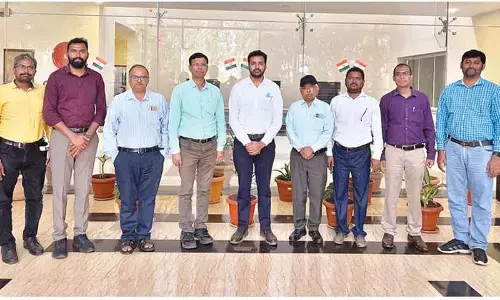Fabulating a neo-eden
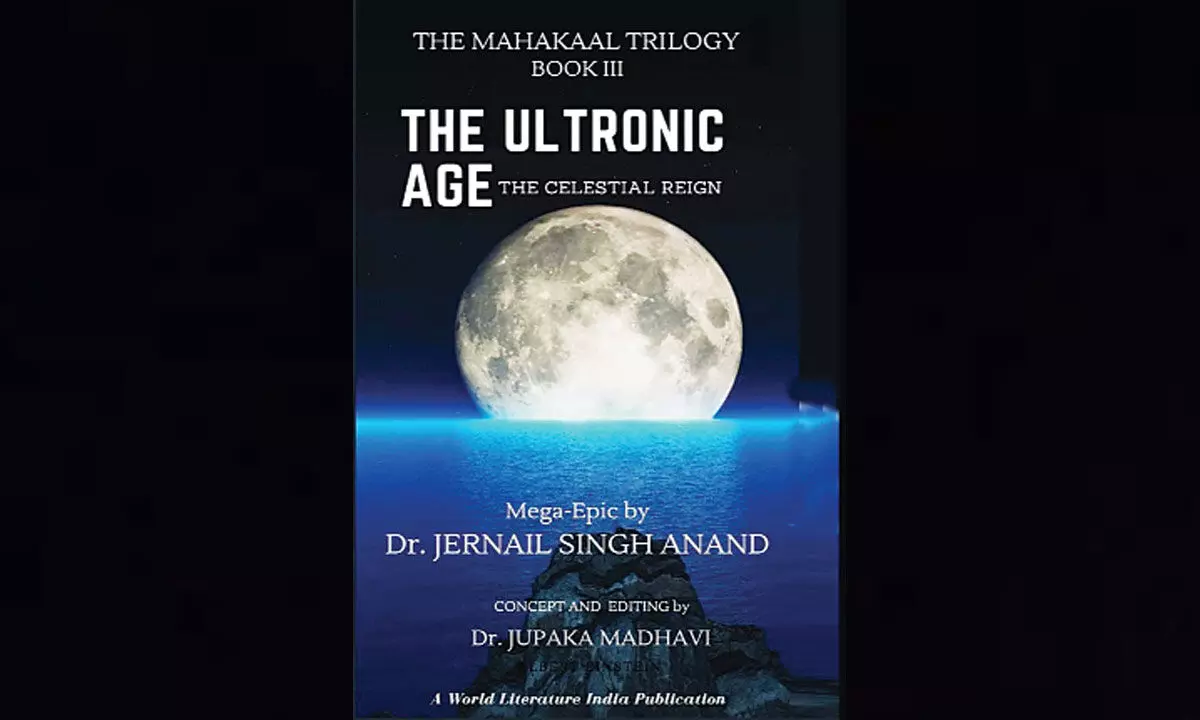
Fabulating a neo-eden
The Ultronic Age: The Celestial Reign is the Book III of The Mahakaal Trilogy by Dr Jernail Singh Anand, who has, of late, emerged as the most authentic voice of contemporary times in world literature.
'The Ultronic Age: The Celestial Reign' is the Book III of The Mahakaal Trilogy by Dr Jernail Singh Anand, who has, of late, emerged as the most authentic voice of contemporary times in world literature. Critics do not hesitate to compare him with Daniel Defoe, given the biting satire we come across in his Trilogy, which triggers off new myth-making through an intermix of Eastern and Western myths and assumes the form of a timeless world classic. Book I and Book II of the Mahakaal Trilogy provide a conspicuous description of the world of decay and death, popularly known as "Kaliyuga". Here in "A battle of ballots between gods and devils" angels who lose their security deposits, once again get control of the Universe, paving the way for Satyuga with the blessings of Mother Saraswati, the Goddess of Knowledge.
'The Ultronic Age: The Celestial Reign' is a Utopian world, a 'New Heaven,' the post-technology, post 'experience,' post-religion world. In the words of the poet: "This is the Neo-Aden whose inhabitants are not in a state of ignorant bliss. It is also not the pre-knowledge estate. This is the post-technology scenario in which humans are expected to use their knowledge for cosmic well-being. Dr Anand's super-creative mind and imagination spin out a fairy tale like Utopian-cum-Heavenly world of Ultronia, a world in which sin and damnation have no place; only Ecstasy, Innocence, and Purity form the Triumvirate of human existence.
TS Eliot says: "Instead of narrative method, we may now use the mythical method. It is a step toward making the modern world possible for art". By exploring the inner world of myths, the poet can find a pattern by discovering the interconnectedness of Eastern and Western myths that are interlaced with transtextuality, enabling the poet to create a modern epic in its unique form. Under the reign of Queen Ultronia unlike the Garden of Eden, the new human beings Arshit and Eva have been directed to innovate in the field of knowledge, science and technology, but not to the detriment of creation - human as well as non-human. The visit of aliens from Mars, and the presence of Godot who finally arrives lend a lot of hilarity to the text. The book closes with a Cosmic Anthem, which underlines Dr Anand's vision of the cosmic personality of man, transcending humanism. That is why he is called our times' greatest idealist and moralist.
Make us capable of Human
Dignity
Make us capable of Divine Grace
Make us transparent like Glass,
Make us humble like the Grass.
Recipient of Franz Kafka International Literary and Artistic Prize 2022, Dr JS Anand, Panjab University, Chandigarh alumni, is currently honorary Professor Emeritus at the European Institute of Roma Studies, Belgrade. He has authored 145 books of English poetry, fiction, non-fiction and spirituality, especially the Mahakaal Trilogy. Dr Maja Herman Sekulic, a Serbian-US poet, regards Dr Anand as the greatest philosopher of the 21st century whose oeuvre exudes his deep commitment to the realms of spirituality, environment and humanism. Mahaakal Trilogy could have been written only by Dr JS Anand, the visionary endowed with an unearthly combination of knowledge, wisdom, love, spirituality and powerful imagination. The third and final book of the trilogy celebrates the homecoming of man, God's favourite creation, in more than one sense. Epical literature is already in vogue in cinematic worlds like "Star Wars". The Mahakaal Trilogy is Dr Anand's supreme contribution to world literature as it redirects literature to the lotus-land of the highest form of literature, the epical poetry (homecoming); like three-headed Brahma, the grand creator, Dr Anand in The Mahakaal Trilogy fabulates a universe of magic poetry by unifying epic traditions with technical innovations such as "flashbacks ", "cut-ins", "whisper" as mode of slick communication etc. so that interests of adventure seeking modern human race may be redirected from cinema to poetry, a grand service to ma Saraswati.


